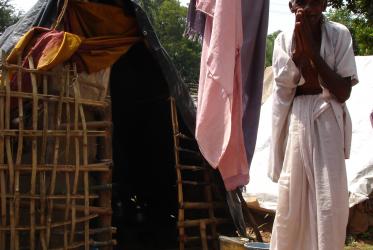Displaying 61 - 80 of 127
11 January 2018
G7 must address famine
22 May 2017
“Overcoming economic injustice” vision of WCC’s Athena Peralta
23 February 2017
During Lent, a “carbon fast” can honour God’s creation
09 February 2017
New videos help congregations hasten HIV response
20 October 2016
Prayer and hope mark anniversary of atomic bombings
05 August 2016
New Executive Committee members elected in Trondheim
28 June 2016
Winners of WCC photo contest announced
09 May 2016
Voices from HIV workshop reflect deep impact
07 April 2016









